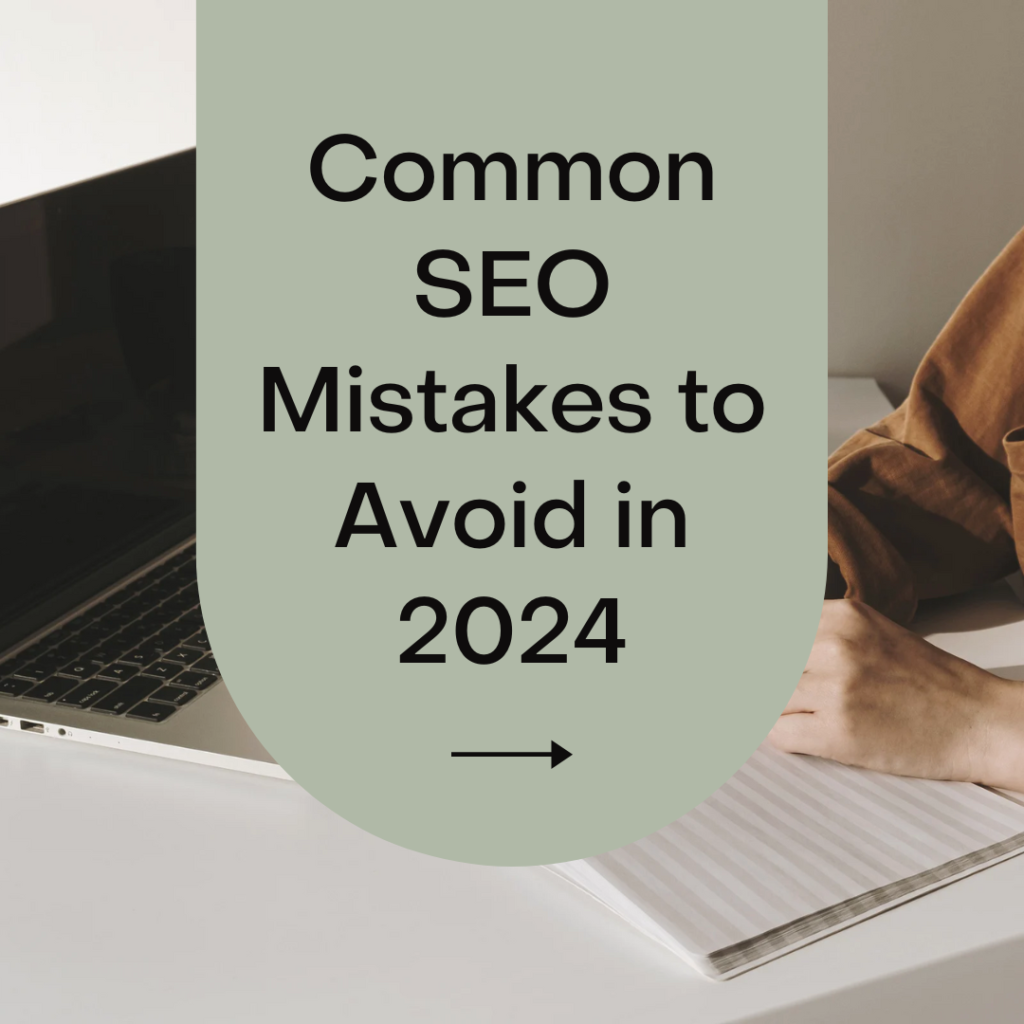Common SEO Mistakes to Avoid in 2024
In the ever-evolving world of Search Engine Optimization (SEO), staying on top of the latest trends and avoiding common pitfalls is crucial for maintaining a strong online presence. As search algorithms and user expectations continue to shift, here’s a guide to the SEO mistakes you should steer clear of in 2024.
Overlooking Mobile Optimization
- Why It’s Important
With mobile searches making up a substantial portion of online activity, and Google prioritizing mobile-first indexing, ensuring your site is mobile-friendly is essential.
- What to Do Instead
Make sure your site is fully responsive and offers a smooth experience across all devices. Regularly test mobile performance and address any issues to maintain a high-quality mobile user experience.
- Neglecting User Experience (UX)
- Why It’s Important
User experience influences how visitors interact with your site and their likelihood to stay longer. Google’s algorithms increasingly emphasize UX, and a poor experience can lead to higher bounce rates and lower rankings.
- What to Do Instead
Improve site navigation, enhance loading speeds, and focus on a clean design. Ensure your content is engaging, easy to read, and accessible to all users.
- Ignoring Local SEO
- Why It’s Important
Local SEO is vital for attracting customers within your geographic area. As localized searches become more common, neglecting local SEO can mean missing out on valuable traffic.
- What to Do Instead
Optimize your Google My Business listing, keep your NAP (Name, Address, Phone Number) consistent across the web, and create content tailored to your local audience.
- Disregarding Search Intent
- Why It’s Important
To understand the search intent is important. Simply targeting keywords without considering what users are actually looking for can lead to content that falls short.
- What to Do Instead
Align your content with various types of search intent—informational, navigational, transactional, and commercial investigation. Use SERP analysis and tools to accurately address user intent.
- Neglecting On-Page SEO
- Why It’s Important
On-page SEO elements like title tags, meta descriptions, and header tags help search engines understand and rank your content effectively.
- What to Do Instead
Optimize your on-page elements with relevant keywords, compelling meta descriptions, and proper header tags. Regularly audit and update these elements to stay aligned with best practices.
- Ignoring Technical SEO
- Why It’s Important
Technical SEO ensures that search engines can properly crawl and index your site. Issues such as broken links, slow page speeds, and poor site structure can negatively affect your rankings.
- What to Do Instead
Conduct regular technical audits to detect and resolve any issues. Ensure your site is crawlable, improve loading times, and maintain a well-organized site architecture.
- Sticking to Outdated SEO Techniques
- Why It’s Important
SEO practices change over time, and what worked in the past may no longer be effective or could even harm your site. Using outdated techniques can negatively affect your rankings.
- What to Do Instead
Stay updated on the most recent SEO trends and changes in search engine algorithms. Move away from outdated practices like keyword stuffing and poor-quality link building, and adopt modern, proven strategies.
- Neglecting to Monitor and Adjust
- Why It’s Important
Keep up with the newest SEO trends and updates to search engine algorithms.
- What to Do Instead
Leverage tools such as Google Analytics and Search Console to monitor your site’s metrics. Continuously assess performance and refine your SEO strategy based on the latest data and insights.
- Compromising Content Quality
- Why It’s Important
Quality content is crucial for engaging users and achieving higher rankings. Thin or irrelevant content can undermine your site’s credibility and effectiveness.
- What to Do Instead
Focus on producing comprehensive, valuable, and engaging content. Regularly update your content to keep it relevant and useful for your audience.
- Neglecting Quality Backlinks
- Why It’s Important
High-quality backlinks from authoritative sites play a key role in search rankings. Low-quality or spammy links can harm your site’s reputation and performance.
- What to Do Instead
Build quality backlinks through legitimate methods such as guest blogging, partnerships, and outreach. Steer clear of tactics such as purchasing links or engaging in link schemes.
Conclusion
Avoiding these common SEO mistakes will help you maintain and improve your website’s search engine rankings in 2024. By staying informed, focusing on user experience, and continually optimizing your site, you can drive more traffic and achieve better results in the competitive SEO landscape.

